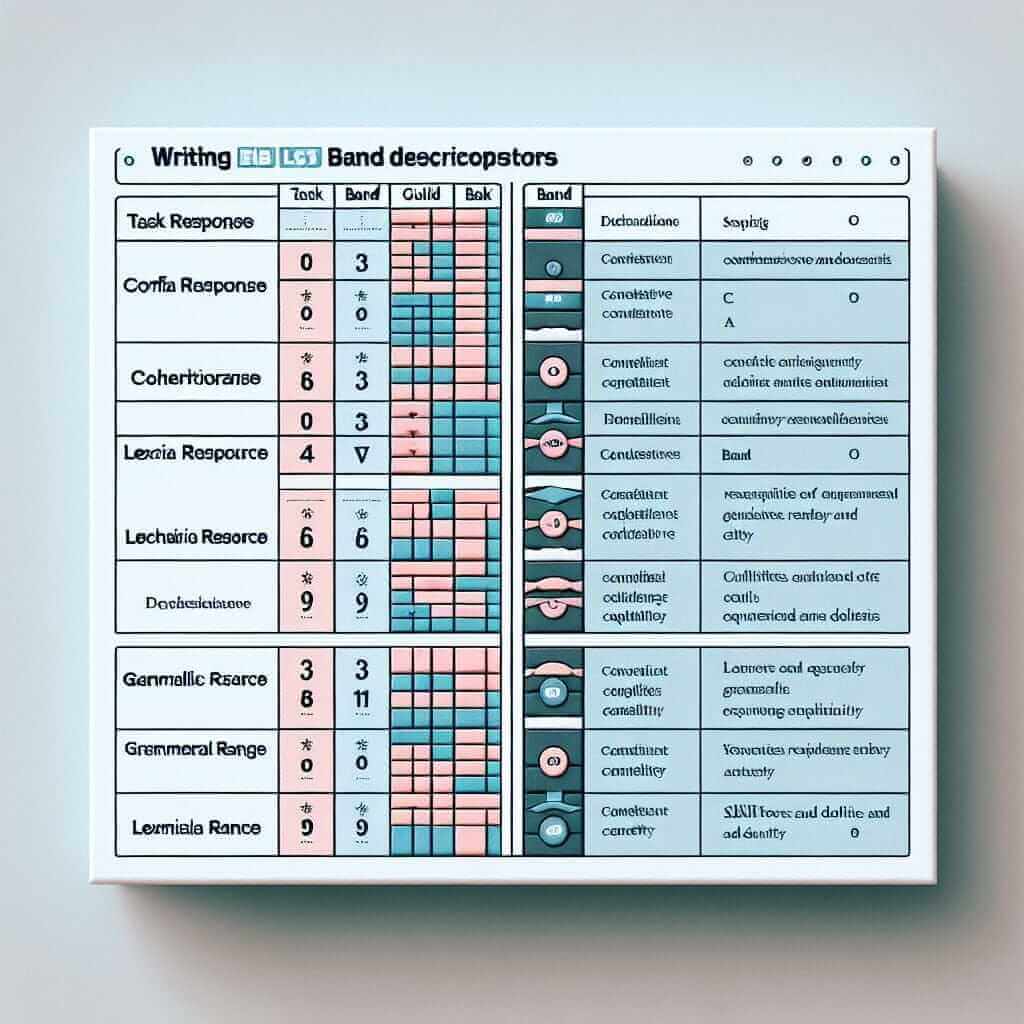As an IELTS instructor with over two decades of experience, I often encounter students who are mystified by the IELTS Writing marking criteria. Many find it challenging to understand what examiners are looking for and how to achieve their desired band score. This comprehensive guide aims to demystify the IELTS Writing band descriptors, providing you with clear insights into how your essays are evaluated and offering practical strategies to enhance your writing prowess.
Deciphering the IELTS Writing Band Descriptors
The IELTS Writing test assesses your ability to articulate your ideas effectively in written English. Whether you’re taking the Academic or General Training module, your essays are evaluated based on four key criteria:
1. Task Response (or Task Achievement): This criterion measures how well you address all parts of the task, present a clear position, and develop your ideas with relevant supporting details and examples.
2. Coherence and Cohesion: This assesses your ability to structure your essay logically, using cohesive devices such as linking words and clear paragraphing to guide the reader smoothly through your arguments.
3. Lexical Resource: This criterion focuses on your vocabulary range and accuracy. Examiners look for your ability to use a variety of words and phrases appropriately and effectively.
4. Grammatical Range and Accuracy: This assesses your command of English grammar. It evaluates your ability to use a variety of sentence structures accurately and appropriately.
Inside the Mind of an IELTS Examiner: How Your Essay is Graded
Each of the four criteria is weighted equally, contributing 25% to your overall Writing band score. Examiners use detailed band descriptors to assess your performance against each criterion. These descriptors outline the specific skills and qualities demonstrated at each band level, from Band 0 (non-user) to Band 9 (expert user).

Let’s illustrate with an example:
Imagine you receive a Band 7 in ‘Lexical Resource.’ This signifies that you:
- Use a sufficient range of vocabulary to allow some flexibility and precision.
- Use less common lexical items with some awareness of style and collocation.
- May produce occasional errors in word choice, spelling and/or word formation, but these do not impede communication.
Strategies for IELTS Writing Success
Understanding the band descriptors is crucial, but how can you apply this knowledge to improve your writing?
1. Master the Art of Task Response:
- Carefully analyze the essay prompt to identify keywords and the specific task requirements.
- Develop a clear and relevant thesis statement that directly addresses the prompt.
- Support your arguments with well-developed examples, evidence, or explanations.
2. Craft a Coherent and Cohesive Essay:
- Structure your essay logically, using clear paragraphs with topic sentences to introduce each main idea.
- Utilize a variety of linking words and phrases to connect your ideas smoothly and create a natural flow.
- Use referencing and substitution to avoid repetition and maintain clarity.
3. Expand Your Lexical Resource:
- Read extensively in English, paying attention to new words and phrases and their usage.
- Use a dictionary and thesaurus to build your vocabulary and learn synonyms and antonyms.
- Practice using less common vocabulary in your writing, ensuring accuracy and appropriateness.
4. Refine Your Grammatical Range and Accuracy:
- Review English grammar rules and practice using a variety of sentence structures.
- Seek feedback on your writing from a teacher or tutor to identify and correct grammatical errors.
- Pay close attention to punctuation, as it plays a vital role in conveying meaning and clarity.
Key Takeaways
Achieving a high band score in IELTS Writing requires a deep understanding of the marking criteria and consistent effort to improve your writing skills. By familiarizing yourself with the band descriptors, practicing regularly, and seeking feedback, you can approach the writing test with confidence and achieve your desired results. Remember, the key is to demonstrate your ability to communicate your ideas effectively in written English, showcasing your range and accuracy in vocabulary and grammar, while maintaining coherence and cohesion throughout your essays.